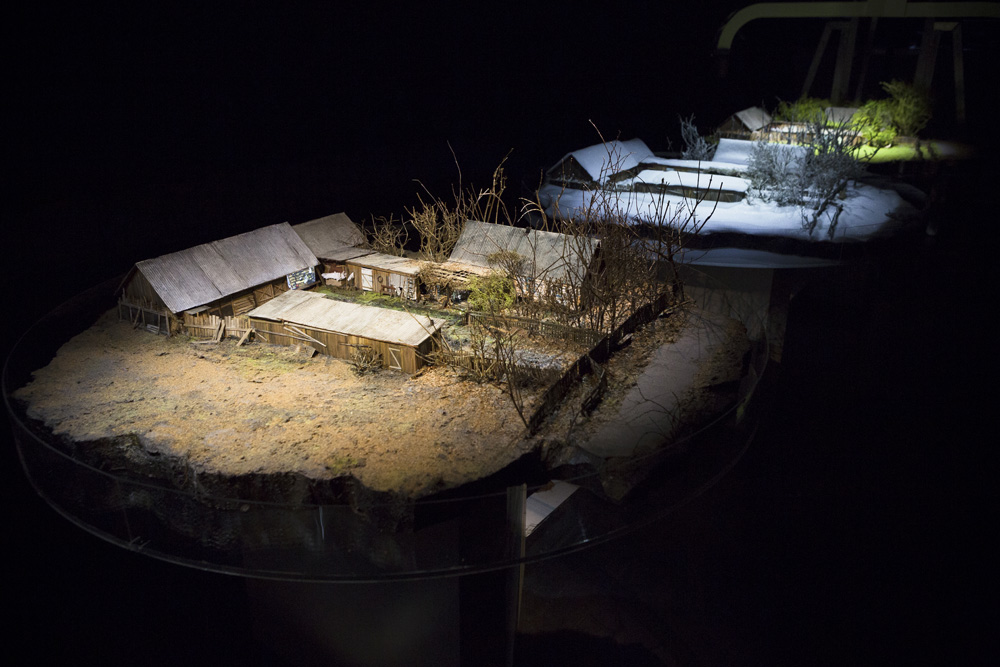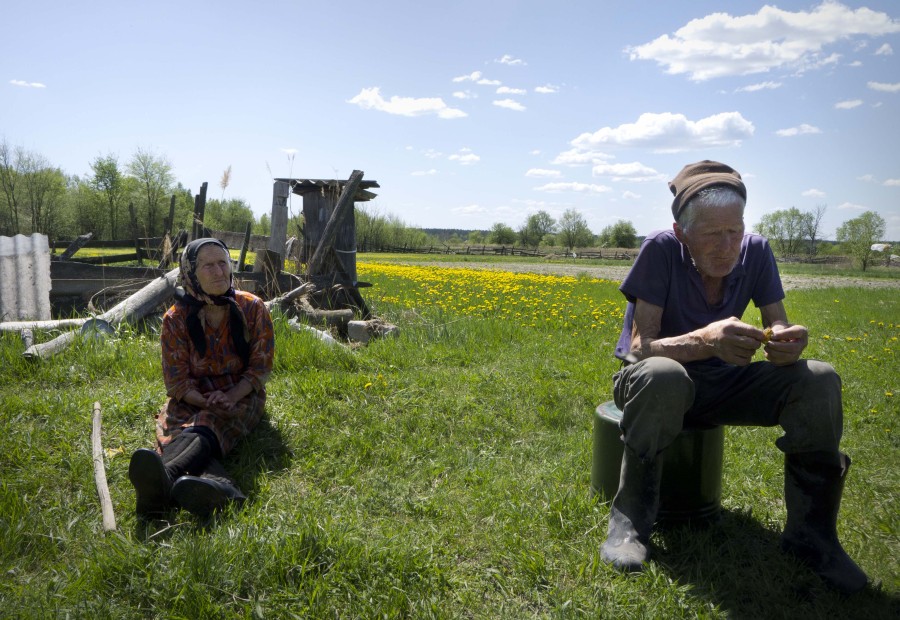
Photo provided by BERLIN
Roundhouse Community Arts and Recreation Centre
February 2, 2019 at 4PM and 8PM
Tickets $39 at pushfestival.ca
Posted February 1, 2019
From the ridiculous (The Matchmaker) to the sublime (Zvizdal), this PuSh Festival offering delves intimately into the real lives of Pétro and Nadia Opanassovitch Lubenoc who, following the nuclear disaster at Chernobyl, refused to leave Zvizdal, a Ukrainian village within the irradiated Exclusion Zone. Everyone else has fled, there’s no electricity, no telephone, no services. Twenty-five years have passed since the catastrophe and the Lubenocs are in their late 70s when BERLIN, a theatre company from Antwerp, arrives with recording equipment, cameras and a permit to enter the Zone.
Nadia and Pétro are wrinkled and grizzled with skin the colour of tanned leather. Head-scarfed Nadia walks with a lurch as if she has had a badly mended broken leg. Pétro moves slowly, muttering “Oh, my god” to himself. There is a dog, a cat, a cow, a horse and a garden where they grow potatoes and, we assume, other vegetables. There’s no grain; they say they miss bread.
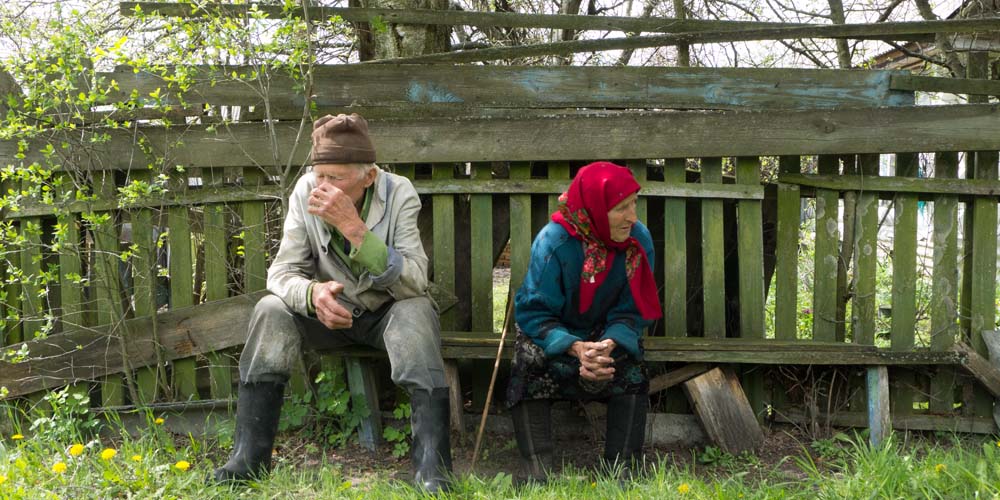
Photo provided by BERLIN
But miraculously, they have survived. Nadia says, “If I don’t die I will survive.” Right out of a Beckett play, they keep on keeping on. And they are not about to leave. Zvizdal, they believe, is where they belong.
Members of BERLIN along with journalist Cathy Blisson returned twice each year for five years to document the lives of Pétro and Nadia. With a video cam mounted on their vehicle, we travel into the Zone to Zvizdal in Spring. It is absolutely beautiful: green and leafy, lush with vegetation and full of birdsong. In winter, the snow is deep, the trees hang low over the road, BERLIN’s vehicle moves slowly through deep tracks in the snow. it is profoundly quiet.
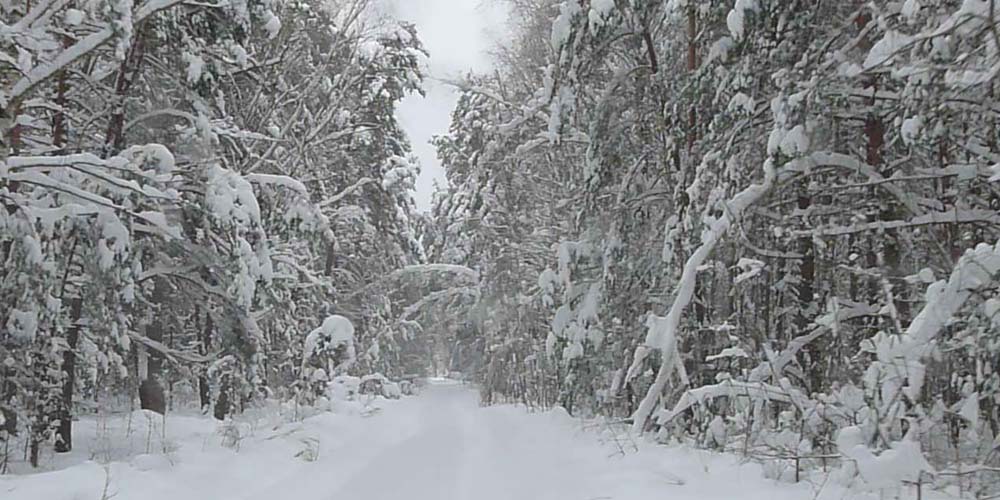
More documentary art installation than theatre, we do not know – nor did BERLIN know – how it would end.
The Roundhouse is set up with two banks of opposing seats on either side of a very large screen. On the floor beneath the screen are three, waist-high small-scale models of Pétro and Nadia’s farmhouse and outbuildings: one of the mock-ups is in spring or summer, another is snow-covered in winter and the third appears to be in Fall when the trees have dropped their leaves. As time passes, lights come up on one or the other to indicate the time of BERLIN’s visit. Filming of the couple in conversation and videos of them going about their chores are interspersed with attention being drawn to the farm models with spotlighting. Subtitles in English appear at the bottom of the screen.
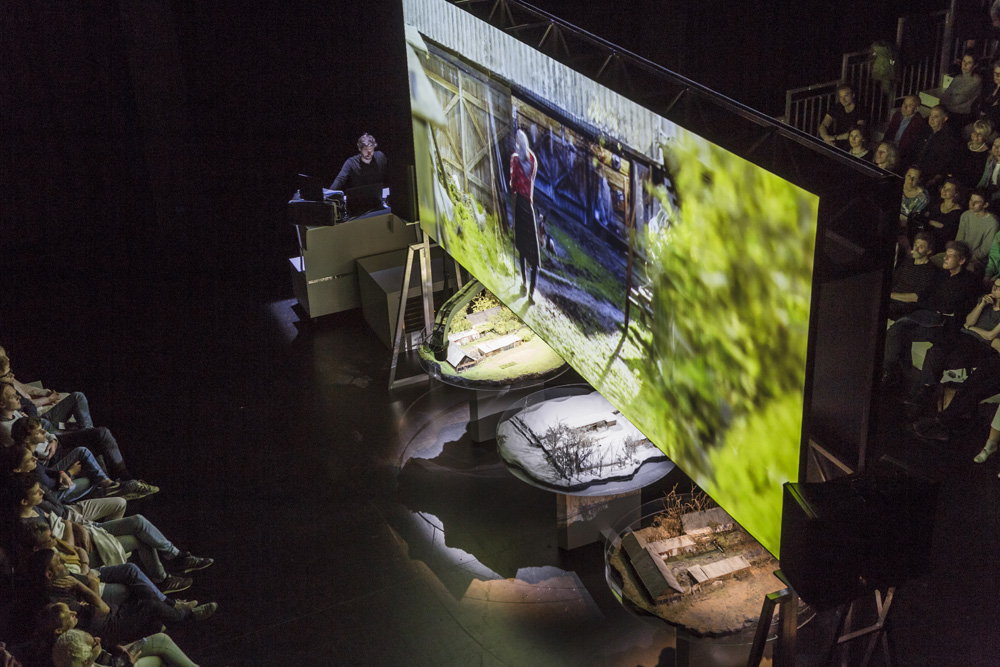
The pace is slow, the silences are long. It feels like a meditation. It’s hard to keep in mind how contaminated this lovely farm in Zvizdal is: the old dog barks, the horse whinnies, the bees hum. It seems to be pastoral perfection.
But a forgotten and abandoned place it is and will remain so for a long time. Apparently hot spots are found but Nadia and Pétro avoid them. The BERLIN crew took precautions when visiting and took all their own food and water. Gifts were brought to the old couple whose nearest store is 20 kms away; with no gasoline for a vehicle, it’s a long walk.
Zvizdal is a love story. Despite small disagreements, Nadia and Pétro care for each other. They laugh together, make jokes about finding another partner. “I loved her then [when they were young] and I love her now,” says Pétro, whom Nadia calls “the old man”. “Not much time to find another,” he jokes.
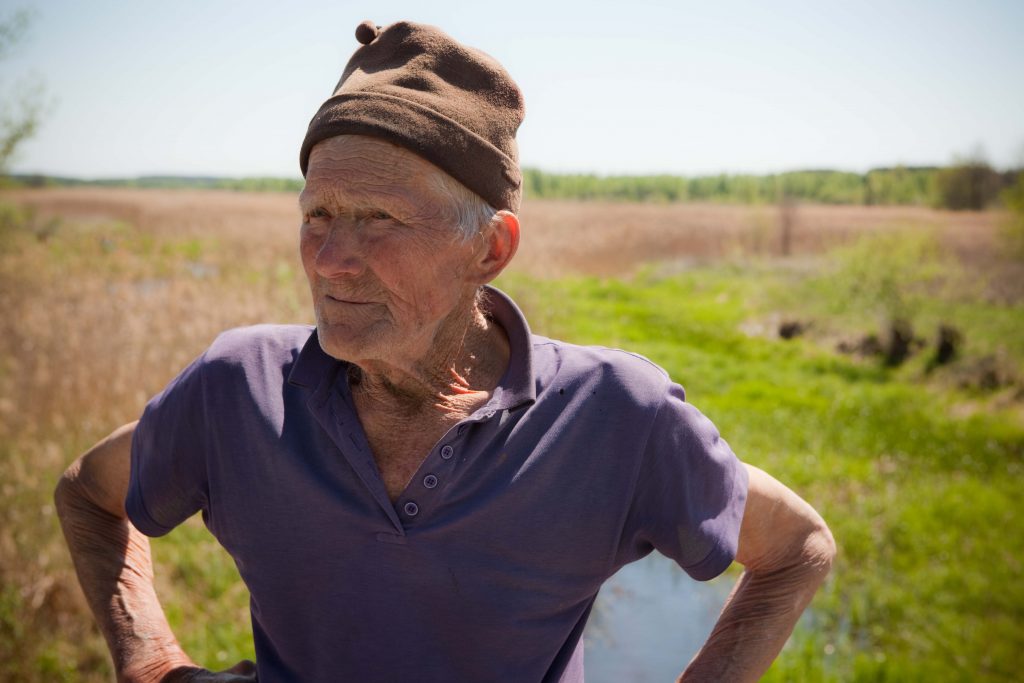
Photo provided by BERLIN
But it’s also about love of ‘place’. “When you get used to a place you should stay there”, Pétro claims. “There’s no place like home,” says Nadia. “Place,” someone commented recently on CBC, “is how you know who you are.”
Zvizdal resonated with me to an almost excruciating extent, living as I do on waterfront land I have leased for 55 years but which is now threatened by park expansion. For outliers like us ‘place’ is how we know who we are.
Even urban dwellers will respond to Zvizdal; it looks like the Garden of Eden struggling to reassert itself.
Sad but beautiful in its way and technically impressive, Zvizdal is highly recommended. Two more performances.
